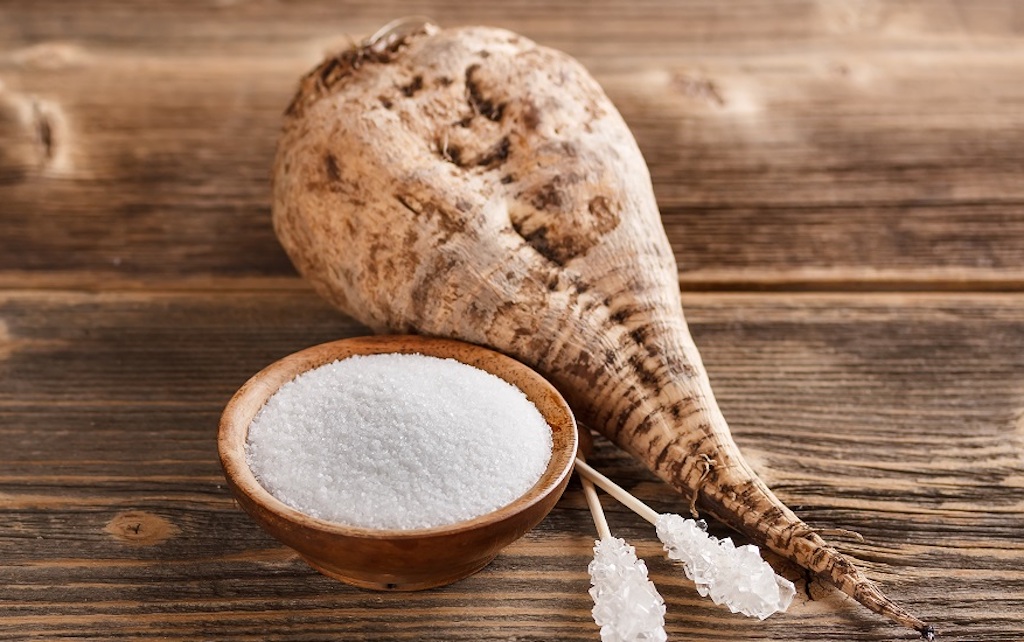3 Mins Read
Is sugar vegan? Why wouldn’t it be, right? How’s this for a shocking fact: not all sugars on the supermarket shelf are vegan.
Even though sugar comes from the sugarcane plant and does not contain animal products, the process used to manufacture some refined sugars can involve bone char—cow bones. At this point, you might be wondering why companies even need to use bone char? And is the sugar in your pantry vegan? If not, where you can find vegan-friendly sugar? We’re here to answer all your questions.
Why is bone char used to make sugar?
Bone char, widely known as “natural carbon”, is a product made from the bones of cattle from Afghanistan, Argentina, India, and Pakistan. Cow’s bones are then traded and sold as bone char to sugar factories all over the world to process sugar. Sugar manufacturers use bone char in sugar processing and refining because it acts as a decolourising filter for sugarcane to achieve the desired white coloured sugar. This means that many products on the market that contain this type of sugar – from cosmetics to food might not be vegan-friendly. Take Lush’s Lip Scrub, for instance, which recently revealed that the sugar used to supply its Japanese factory has been refined using bone char, making it unsuitable for vegans (the product was eventually recalled).

It’s hard to figure out how much bone char is used in the sugar industry, as it requires companies to voluntarily release information. But according to Maryland-based nonprofit Vegetarian Resource Group who collated feedback from sugar industry officials, around 7,800 cows are needed for a single commercial sugar filter.
Which types of sugar are not vegan?
Because refined sugars made from sugarcane require bone char to achieve a clear white colour, most refined cane sugars are unsuitable for vegans. Some types of brown sugar also involve using bone char, such as those that are created by adding molasses to refined cane sugar to achieve the brown colour. Confectioner’s sugar is another non-vegan product, as it is made by mixing cornstarch with refined cane sugar.
Is there refined sugar that is vegan?
There are some brands that now make white refined cane sugar without bone char, and instead use granular carbon or an ion-exchange system. Most of these brands will specify that they are free from bone char or are certified vegan.
Another option is to use refined beet sugar. Beet sugar never involves the use of bone char because sugar beet juice is far easier to refine and process compared to cane juice, making it a vegan-friendly option.

What about other types of sugar?
Raw sugar is typically suitable for vegans. Even though sugarcane is usually used in raw sugar, filtration is skipped in manufacturing to make it “raw”, so no bone char is involved in the process. Likewise, demerara sugar, muscovado sugar and non-white golden caster sugar also skip the bone char filtration process, making them vegan-friendly choices as well.
Another choice is to avoid all refined sugars, which are not only usually vegan but often contain more nutritional value than processed sugar. Some examples of unrefined sugar are coconut sugar, fruit sugar and date sugar.
There are also unrefined sweeteners that are vegan-friendly, such as maple syrup, agave nectar, unsulfured molasses and brown rice syrup – but do note that not all natural unrefined sweeteners are vegan, such as honey, which for a whole host of reasons are not considered vegan-friendly.
Lead image courtesy of dream79 / Fotolia.




